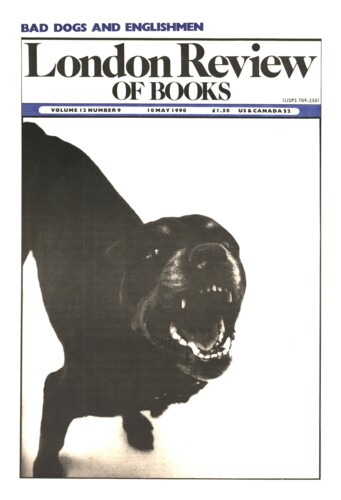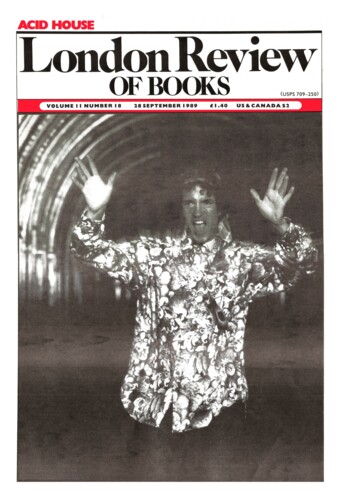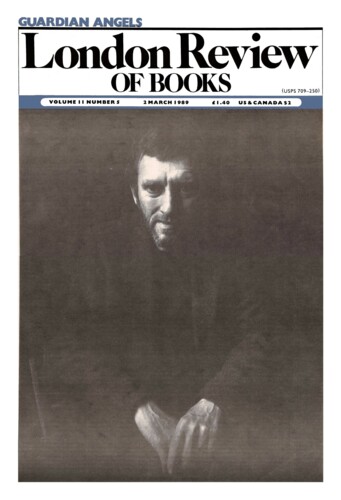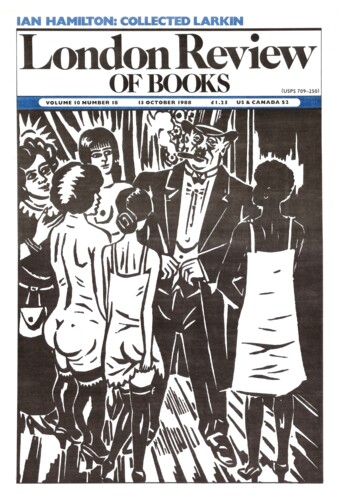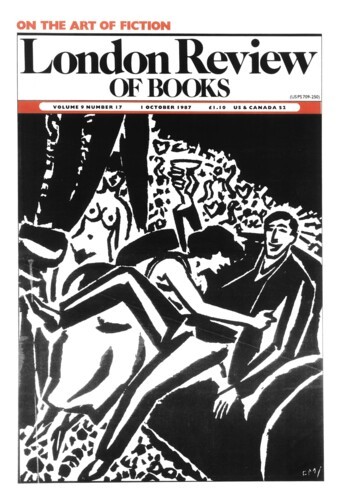They never married
Ian Hamilton, 10 May 1990
On the dust-jacket of the latest supplement to the Dictionary of National Biography there are photographs of David Niven, Diana Dors, Eric Morecambe, John Betjeman and William Walton. Dors has a leering ‘Come up and read me sometime’ expression on her face and Niven wears his yacht-club greeter’s smile. Morecambe seems to be laughing at one of his own jokes. Amiable images, devised no doubt to lure us into a placidly elegiac mood: death can’t be all that bad if it gets you an entry in the DNB. But what’s the matter with Betjeman and Walton? They look glum and sulky, as if they’ve been put in the wrong graveyard by mistake.
